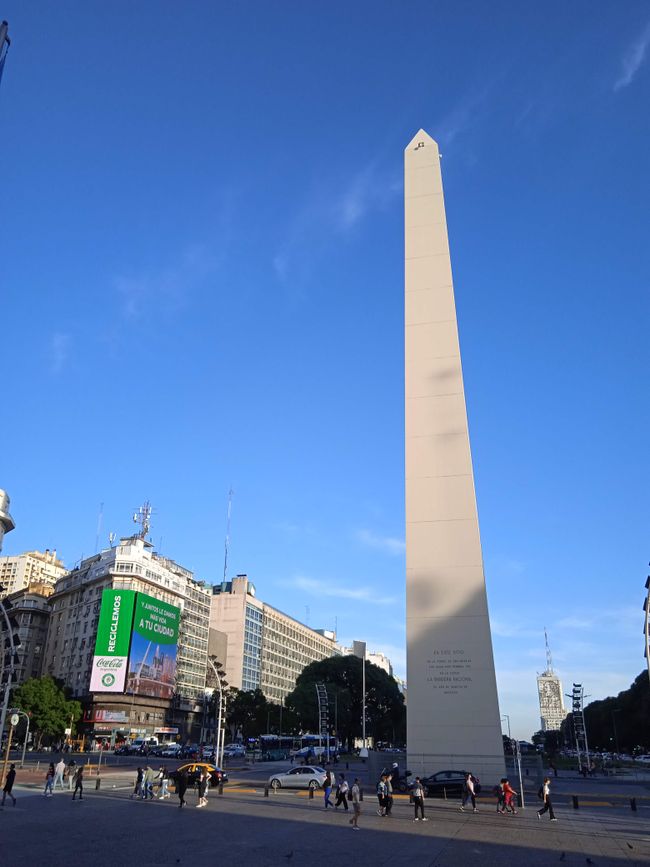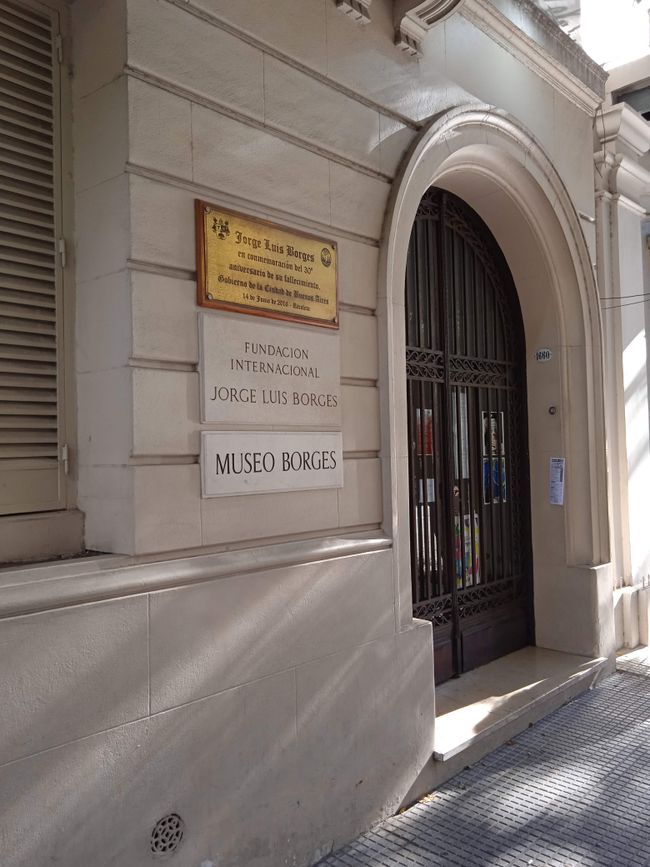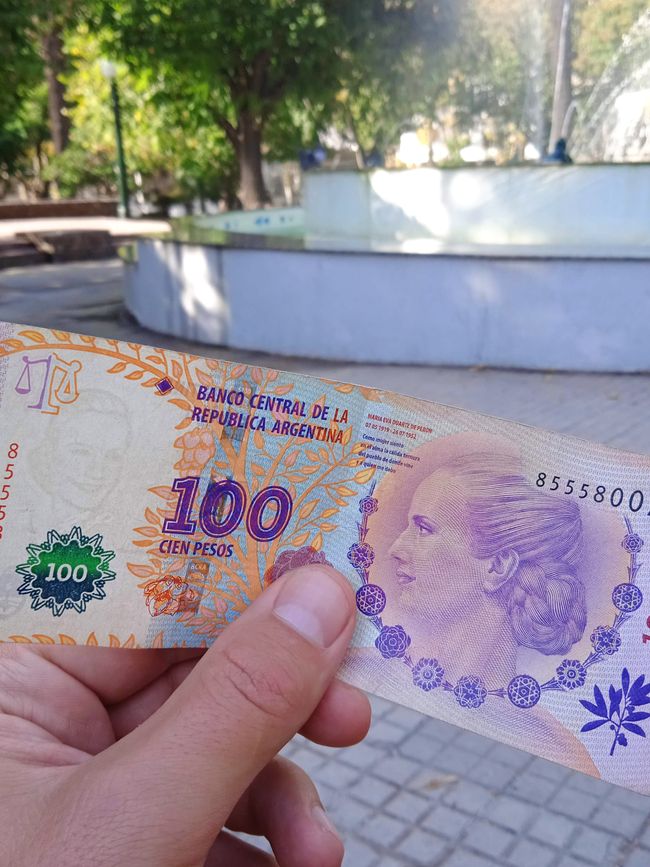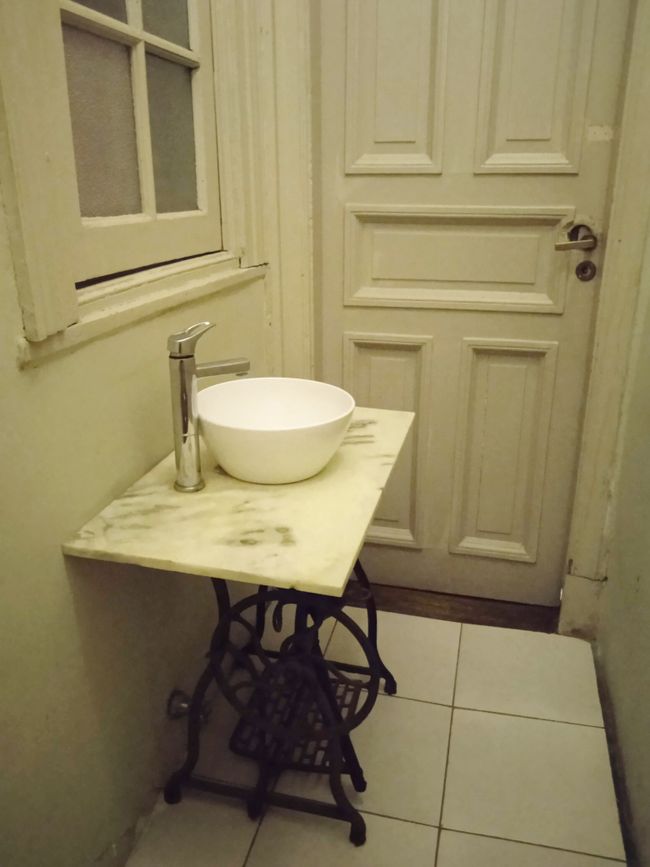'Goodnight And Thankyou'
Published: 21.04.2022
















Subscribe to Newsletter
Buenos Aires was the last stop of my wanderings, now followed, albeit on detours, by the journey home. Looking back, the last posts were already filled with sentimental thoughts about saying goodbye. Unlike the folk poet Roger Whittaker formulated it, farewell in my case was a blunt sword. Not for the first time did I separate from people I met along the way. Contacts were exchanged and invitations were made, sometimes half-hearted, sometimes hopeful. I often used the phrase 'time to move on' without it being too difficult for me.
It was a bit different in Buenos Aires. Due to my long stay here, my relationships with the people and the city were more intense. I also had a lot of time for thoughts, so I made lists in my head. What else needed to be done? Where did I want to stop one more time? Who did I still need to message? Souvenirs? What else do I need to report from Buenos Aires?
While browsing through the last entries, I noticed that some anecdotes had been omitted for editorial reasons. Just like with the bonus pictures, not every observation or thought fit into the context. Nevertheless, it would be a shame to withhold these sketches and possibly let them be forgotten.
Therefore, here are three fairly arbitrary contributions from my time in Buenos Aires.
Blaise Bourgeois
During my first days in Buenos Aires, I met Blaise. At first, I didn't find the American from New York particularly likable. I didn't appreciate his loud manner, squeaky voice, and excessive enthusiasm for soccer and poker. This changed when we had hostel beers. Rarely had I had such a fitting conversation with an American about American politics and everyday madness. The soccer journalist for a German online portal had humor and an endless supply of anecdotes.
Sunday afternoon, we sat together again in the hostel, entertaining the other guests, eventually deciding to have some beers and ending up in a soccer bar in the early afternoon. Something about Manchester and Liverpool was on TV, while familiar faces from Dortmund and Munich sat on the coach's bench. Regardless, the beer was flowing.
You can follow Blaise Bourgeois on Instagram.
Recoleta
Two of my four hostels were located in the upscale Recoleta neighborhood. Strategically located between the party district and the city center, the neighborhood was known mainly for its elite cemetery. The Cementario was a main tourist attraction of the city and the final resting place of Eva Peron. Due to the relatively high entrance fee for a cemetery, 15 euros, I crossed the cemetery off my sightseeing list.
However, Recoleta's elegance was also felt outside the cemetery walls. Patisseries, fancy cafes, and restaurants with white tablecloths dominated the streetscape. Protagonists in this scene were refined ladies dressed in dark autumn colors, with imaginative hairstyles, wearing oversized sunglasses, occasionally accompanied by gentlemen who tucked their shirts into their light-colored pants, prominently showcasing their bellies. This spectacle of an endless Sunday coffee was complemented by dogs of all sizes and shapes, mostly used as accessories or companion dogs. It became particularly absurd on weekdays when professional dog walkers took the four-legged darlings for a walk. Surrounded by up to ten animals, these leashed pack leaders roamed the narrow streets of Recoleta.
Indeed, this subculture of upscale dog ownership even found its way into my travel guide.
Evita and Peronism
Before my visit to Argentina, I was under the simple belief that the Peron system was the somewhat more harmless version of the Spanish Franco dictatorship. On-site, however, I had to realize that political Peronism had developed from its proximity to Spanish fascism into a special form of left-wing populism. This was accompanied by positive social achievements in the areas of workers' and women's rights, as well as opposition during the military dictatorship. And, last but not least, in 2010, Argentina became the first country in Latin America to grant gays and lesbians the basic right to marry.
In contrast, there was an almost absurd cult of personality around Eva Duarte (1919-52), who died of cervical cancer at the young age of 33. Particularly sentimental was a quote from the woman from humble origins on the 100 Pesos banknote: 'As a woman, I feel in my soul the tenderness of the people I come from and to whom I owe something.'
Political successors like the couple Nestor (1950-2010) and Christina Kirchner (*1953) successfully staged themselves following the example of the Perons. They increasingly used their influence for a politics with totalitarian tendencies, accompanied by economic incompetence and corruption... while at the same time making societal progress. Complicated!
Subscribe to Newsletter
Answer

Travel reports Argentina

